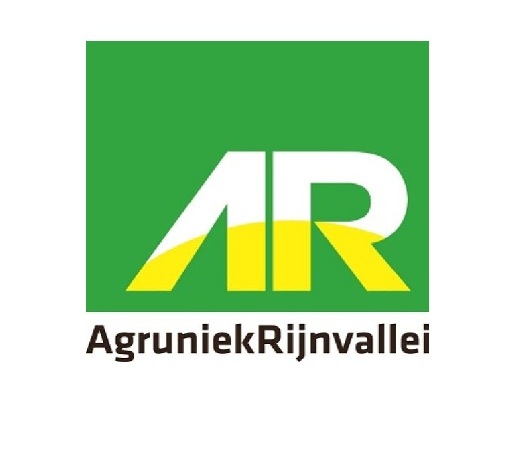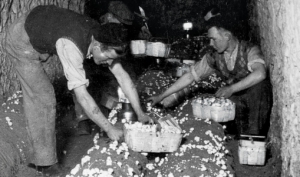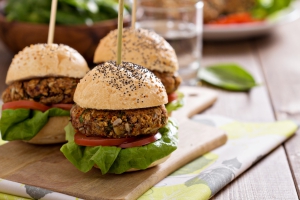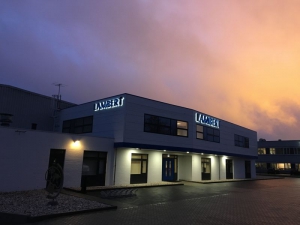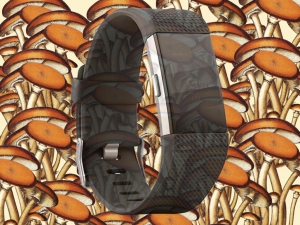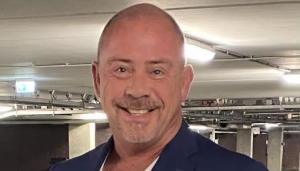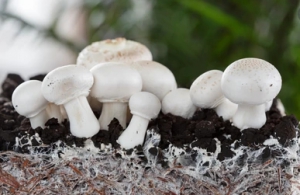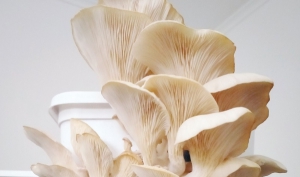Ecovative and Limbraco Join Forces to Transform Mushroom Farming with Cutting-Edge Technology
- The collaboration opens doors to emerging markets in mycelium-based products, offering farmers new avenues for business expansion.
- Comprehensive training and support will be provided to farmers, ensuring seamless integration of this technology into their operations.
GREEN ISLAND, N.Y., December 6th, 2023 — Today marks a significant milestone as Ecovative, the frontrunner in mycelium-based materials, and Limbraco International BV, a leading manufacturer in mushroom agricultural machinery, proudly announce a strategic alliance to manufacture specialized farming equipment for the production of Ecovative’s flagship AirMycelium™ crops. This collaboration is focused on developing state-of-the-art filling and harvesting equipment, aimed at introducing new, high-value mycelium crops to the mushroom farming industry and accelerating the growth of the mycelium materials sector.
"We are excited about this partnership with Ecovative," says Frank Cornelissen of Limbraco International BV. "It represents a fusion of cutting-edge technology and new markets, aimed at empowering mushroom farmers with the tools they need for success in an emerging and competitive industry."
Ecovative’s technology unlocks a new mushroom mycelium crop for use in fashion materials and animal-free meats. The technology is designed to integrate directly with existing mushroom farms, allowing mushroom growers a quick addition of high value, fast growing product lines to their facilities.
To bring the burgeoning mycelium-based industry to market at scale, Limbraco's machinery includes custom-designed equipment that ensures consistently high yields and quality material when paired with Ecovative’s patented growing process. A successful pilot with Whitecrest Mushrooms, a large commercial mushroom farm in Ontario Canada, demonstrated the viability of this approach, and the farm will be dedicating half of its mushroom production capacity to the new AirMycelium technology in 2024.
“Limbraco's sophisticated and reliable equipment is essential for meeting the unique requirements of Ecovative’s mycelium crop, AirMycelium.” said Gavin McIntyre, Chief Commercial Officer at Ecovative, “This strategic alliance is a significant step towards scaling up the production of new high-value mycelium crops for mushroom farmers, which hold immense potential for food and fashion."
The announcement comes after a year of close collaboration between Ecovative and Limbraco. Access to Ecovative and Limbraco's mycelium production machinery will be exclusive to Ecovative’s mushroom farm network. To enquire about opportunities or become a contract grower visit ecovative.com.
About Ecovative:
Ecovative is a biological science and design company, advancing mycelium technology to transform industries with high quality, Earth-friendly materials. Founded in 2007, Ecovative makes mycelium materials and products commercially competitive and accessible to everyone. Leveraging its Mycelium Foundry, dedicated production capacity and a range of industry leading partners, Ecovative grows better materials for everyday needs. To learn more, visit ecovative.com.
About Limbraco:
For over 50 years Limbraco has been active in the mechanization, automation and delivery of complete systems in the entire mushroom growing sector. With in-house knowledge and technology, Limbraco is able to offer turnkey projects, both in the Netherlands and around the world. This means the engineering, construction, machine technology and climate control systems required for a mushroom farm in its entirety. All specific components are manufactured in-house, for example, picking lorries, conveyors, special doors, climate units, control cabinets, et cetera.
Media Contact:
Lacey Davidson — This email address is being protected from spambots. You need JavaScript enabled to view it.
Media Kit
EuroMycel launches new website
EuroMycel is excited to announce the launch of their brand new website! Browse through for detailed information on their history, philosophy, and Mycelium varieties. Discover their production process, product creation, and meet their team. Today you get a sneak peek into EuroMycel’s journey.
Story of EuroMycel
Established in 1868, Royal Champignon pioneered the Loire Valley's mushroom industry. After merging with Guilbaud Group, EuroMycel, once a Guilbaud Group subsidiary and now part of France Champignon, became a key historical spawn maker.
The group has grown since the 1950s through external expansion, allowing for innovation capacity in product development to distribution. EuroMycel has acquired impressive expertise and a unique strain collection, which has resulted in a distinctive "savoir-faire."
Philosophy
EuroMycel believes that genetics of Agaricus bisporus does not limit biotransformation. They use a unique physiological conditioning process on their commercial sub lines to maximize mushroom compost. Their approach is different from standard breeding strategies as their varieties are based on biochemical markers in the vegetative phase.
Mushroom Spawn
The company's unique strain maintenance relies on mycelium interaction with compost to provide reliable spawn products with consistent pinning performances. They have a deep knowledge of fungal physiology and use a specific step-by-step vegetative screening process combined with strict water control to optimize selectivity. They enhance the absorption capacity of the spawn through a sophisticated physical measurement process, critical for the bio-transformation in compost and crop growth. This process also enables strain differentiation.
Discover more about their expertises on https://www.euromycel.com
Contact their team via https://www.euromycel.com/contact
GREEN ISLAND, N.Y.--(BUSINESS WIRE)--Ecovative announced today that it is opening access to a major European patent to all individuals and businesses who wish to use its MycoComposite™ mycelium materials in their own innovations and businesses in Europe. The company’s renewable material offers a nontoxic, planet-friendly alternative to plastics and other fossil fuel-derived materials.
Ecovative’s MycoComposite invention enables the manufacturing of products that are free of forever chemicals and other toxic substances like formaldehyde. This patent outlines a strategic blueprint for the creation of eco-friendly and renewable mushroom mycelium composites, offering a promising solution to curtail CO2 emissions across diverse industries and combat the escalating climate crisis.
"The goal of Ecovative has always been to provide the 'picks and shovels' for a new generation of businesses realizing the potential of mycelium technology," says Ecovative co-founder and CEO Eben Bayer. "The growing demand for environmentally beneficial products and processes is creating immense new opportunities not to reinvent the wheel, but to change what the wheel is made of, and we're excited to see the new discoveries and scalable solutions made with this versatile technology, for the benefit of Spaceship Earth."
The European Open Patent Program for MycoComposite is intended to encourage innovation in plastic-free products. The patent is already in use around the world in protective packaging, construction materials, architecture and innovative applications to replace petrochemical use. Several successful businesses have already been launched using MycoComposite, notably Loop Biotech which makes a popular line of mycelium coffins and urns.
"Loop Biotech has seen firsthand the huge demand for innovative, planet-friendly solutions enabled by mycelium materials," said Bob Hendrikx, founder of Loop Biotech, which uses MycoComposite material to produce sustainable coffins and urns. "I started this company to help humanity leave a positive footprint on the Earth, which is only possible when we collaborate with living organisms like fungi."
A sharp rise of interest in Europe for entrepreneurial applications of MycoComposite make it an ideal environment to test the potential of open access patents to spur an increase in innovations and businesses around mycelium technology. MycoComposite licensing and partnership opportunities will continue to be available outside of Europe supported by Ecovative’s state-of-the-art spawn and substrate facilities. The company owns numerous patents and patent applications related to mycelium manufacturing and product development globally.
For the complete article, click here
Source Ecovative
Plant-based mushroom innovation sees the light
Growing mushrooms above ground and sprouting soybeans are two entrepreneurial efforts looking to make plant-based protein ingredients more nutritious, affordable and sustainable.
Mush Foods, Ltd., Rehovot, Israel, a portfolio company of the Strauss Group Kitchen FoodTech Hub founded in 2021, now offers a 50CUT mycelium protein ingredient system to reduce the animal protein content in meat products by 50%, said Shalom Daniel, co-founder and chief executive officer of Mush Foods. The ingredient requires no agricultural land and uses minimal energy and water, according to the company. Cultivation does not depend on season or climate.
A binder and whole protein, the mushroom mycelium needs no added binders and offers an umami flavor and a fleshy meat-like texture as well as fiber, vitamins and minerals, Mr. Daniel said.
The company so far has developed 50CUT beef and 50CUT chicken. Pilot plants will be built in the United States. Company plans are to launch sales in the first quarter of 2024.
Read the full article here.
Source: Food Business News
The purchase brings Ecovative greater global vertical integration as it expands international production of mycelium materials in fashion, packaging, and food.
Ecovative acquires Lambert Europa Spawn and Substrate facility in the Netherlands, expanding global reach for the company's patented mycelium technologies to more than 5 continents.
GREEN ISLAND, N.Y.--(BUSINESS WIRE)--Ecovative, the world's leading mycelium technology company, today announced the purchase of Lambert Spawn Europa B.V., a state-of-the-art mushroom spawn production facility in the Netherlands, from a subsidiary of Pennsylvania-based Lambert Spawn Company. The purchase vertically integrates a major source of mushroom substrate — mixtures of raw agricultural products inoculated with specialized mushroom strains — within the operations of the world's premier developer of mycelium materials and products. The new line of supply will enable and support Ecovative's consistent and rapid expansion internationally and across all categories as both a producer and supplier to other mycelium companies.
Under Ecovative's ownership, the facility will continue producing spawn to serve its list of existing clients, including mushroom growers and producers of mycelium materials. It will also produce proprietary blends of substrate used to grow mycelium materials. These materials support Ecovative's Forager™ and Mushroom™ Packaging divisions, as well as My™Forest Foods and its popular My™Bacon, alongside a growing list of licensee companies. Forager will use the substrate to supply natural mycelium materials for the fashion and apparel industries, such as leather-like hides and high performance foams, and Mushroom Packaging will use the substrate to produce composite materials used to replace plastic foam packaging.
"Ecovative is committed to providing the world's best mycelium technologies," says Eben Bayer, Ecovative's CEO and co-founder. "We're working closely with Lambert and the facility's incredible team of industry professionals to continue providing existing clients with the same quality products they know and love. This acquisition also positions our company to ensure the highest quality of feedstock for a wide range of new mycelium materials, enabling the best possible products and the capacity to supply our quickly growing global network of customers and licensees as they continue to expand over the coming years."
"We are proud of the state-of-the-art facility we built in Venlo, and the team we gathered to operate it," says Scott McIntyre, Executive Vice President and Co-Owner of Lambert Spawn. "Since collaborating with Ecovative, it has become clear that they are the ideal team with the right expertise of stewarding the facility and caring for its customers, while also creating exciting new opportunities as Lambert continues to focus on serving and growing our North American markets. The Lambert name was built on quality and innovation, and we are glad that Ecovative will bring this same commitment to Lambert Spawn Europa, for everyone's continued success."
The Netherlands-based team and facility will continue to produce the same high quality spawn and substrate, servicing existing mushroom growers and new clients, serving markets in Europe, Middle East, Africa, and South America. The facility employs 17 people, and is capable of producing approximately 20 million pounds of spawn and substrate per year, with the capacity to grow significantly in the near future.
Ecovative already operates the largest production plant for mycelium materials in the world, at its base of operations in Green Island, New York. The acquisition of Lambert Spawn Europa makes it possible to supply high-quality raw materials and mycelium strains to a global network of customers and licensees, in addition to the company's own brands. It also reflects an ongoing investment in the mycelium materials supply chain, the use of existing infrastructure whenever possible, and a big step toward full vertical integration that positions Ecovative as the global leader in scaled supply of high quality raw materials for the emerging, fast-growing mycelium technology industry.
About Ecovative:
Ecovative is a materials science company unlocking the natural potential of mycelium with modern technology. Founded in 2007, Ecovative’s mission is to create next generation materials through mycelium biofabrication and to make mycelium materials accessible to everyone. Leveraging its Mycelium Foundry, Ecovative works with partners throughout the textiles, food and packaging industries to grow better materials for everyday needs. To learn more, visit http://www.ecovative.com.
About Lambert:
The L.F. Lambert Spawn Company was established in 1919. Our founder, Louis Lambert was a pioneer in many mushroom spawn manufacturing techniques. Headquartered in Chester County, Pennsylvania, Lambert has been a staple name in the mushroom industry for over a century. Ownership of the company has changed several times during the company's history, with the McIntyre family proudly at the helm since 1991. The same innovative spirit and dedication to quality continue to be the cornerstones of our business principles to this day.
Contacts
Media Contact:
Lacey Davidson
Marketing Director at Ecovative
This email address is being protected from spambots. You need JavaScript enabled to view it.
Control of Phorid flies (Megaselia halterata) in mushroom cultivation – the late summer is becoming hotter and longer
Phorid larvae (Megaselia halterata) are obligate mycelial feeders therefore, the adult flies are not attracted to oviposit in the compost until after spawning. The up to 6 mm long larvae feed on the growing mushroom mycelium but rarely on the fruiting body itself. They can be distinguished from sciarid larvae by the absence of the black head, and they develop more rapidly into a pupa.
The adult fly can be distinguished from the sciarid fly by the short antennae and by its rapid, jerky, running movement. Adult phorids act as a vector for dry bubble. 75 flies per m2 may already cause an outbreak of the disease. Phorid flies are unable to fly when the temperature falls below 12°C (54°F). In the past they have rarely infected mushroom houses after late fall. As there are now more and more warm days into November, this period is prolonged.
e-nema comes with a solution to control phorids. If you wish to know more, please visit their website.
‘Shroom FitBit: Processors In Tech Wearables Could Be Replaced With Fungi Mycelium, New Study Finds
In a recent study titled ‘Reactive fungal wearable‘, researchers explore the use of fungi as a potential candidate to produce sustainable textiles that can be used as eco-friendly bio wearables, for instance, the processors in tech wearables like Fitbits could be replaced by incorporating mushroom mycelium.
The joint research venture undertaken by the University of the West of England, Bristol, the U.K. (UWE Bristol) and collaborators from Mogu S.r.l., Italy, Istituto Italiano di Tecnologia, Torino, Italy and the Faculty of Computer Science, Multimedia and Telecommunications of the Universitat Oberta de Catalunya (UOC) has assessed the sensing potential of fungal wearables.
The researchers of the study conducted several laboratory experiments on the electrical response of a hemp fabric captured by oyster fungi by attaching it to computer sensors and stimulating it with attractants and repellents.
Wearable devices require complex and sophisticated circuits that connect to sensors having at least some computing power, thus making them ‘smart’.
Oyster mushroom mycelium, the fibrous mainframe tissues of fungi that populate under the soil and from which mushrooms sprout was able to perceive several external stimuli like light, temperature, and moisture, as well as certain chemicals in the environment, and even electrical signals in a way that imitates the same function for sensors and processors.
To explain this concept further, we use an example of a heart rate monitor, and using the study’s findings, the mushroom’s perceptions of the environment would become the data that gives you the beats-per-minute count on this device.
Please read the full article here.
Source: Green Queen
Lead image – Experimental setup, courtesy of ‘Reactive fungal wearable’ study.
New Sales Manager at EuroMycel
At the beginning of this year, EuroMycel welcomed a new sales manager to their team, Jeroen Dunant. He has a broad experience in sales within the green industry.
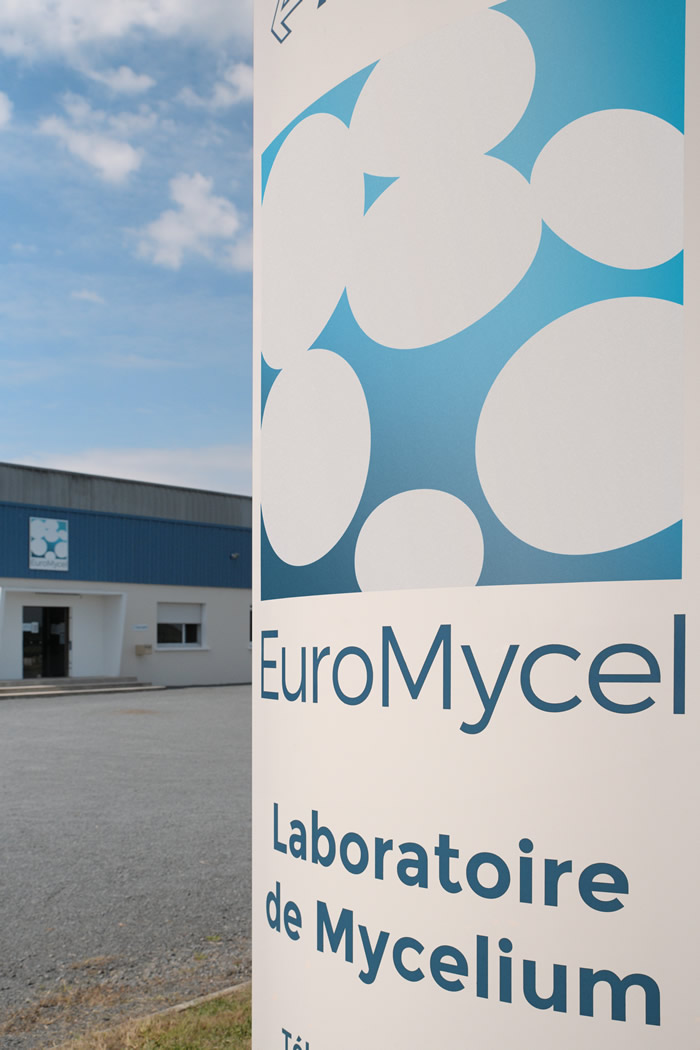 Jeroen is responsible for the North European market, The Netherlands, Belgium, Germany,
Jeroen is responsible for the North European market, The Netherlands, Belgium, Germany,
United Kingdom and Ireland. His main focus is to explore new markets and develop new opportunities for the mycelium products. In particular for the E58 premium mycelium for the fresh mushroom market and the E58 HD for the mechanized market. EuroMycel is a French company that produces mycelium situated in Touraine, home of the royal chateaux of France and cradle of the Champignon de Paris.
In 2010 EuroMycel was taken over by the Bonduelle Group, which enabled them to invest and develop new equipment and laboratories. EuroMycel is a strong player in the Bonduelle Group with a 2,7 miljard revenue last year. The director of the company, Frédéric Mathieu, reports directly to Bonduelles’ management and is therefore able to make quick decisions and direct the growth even more efficiently.
Jeroen works intensively with growers and compost companies. To sell the mycelium, but also invest in tests with the compost companies to improve the quality of compost in the growing companies.
If you have any questions for Jeroen, you can contact him via:
Jeroen Dunant
Sales Manager Northern Europe
Tel: (+31) 6 82183632
Email: This email address is being protected from spambots. You need JavaScript enabled to view it.
www.euromycel.com
Do you wonder where your clothes come from? The material they're made of and how they are produced? Most of us don't, but if we did, we might get a bit uneasy. Now, research is helping the fashion industry take the lead in embracing the circular economy.
If you take an inventory of your closet, chances are you’ll have several garments made at least partly of polyester and nylon. These two low-cost textiles are staples of fast-fashion and currently make up about 60% of clothing and 70% of household textiles.
Polyester and nylon are synthetic fossil fuel-based fibres, meaning they are derived from oil and natural gas. The production of these fibres, their dominant position in the fashion industry, and the fact that they are not biodegradable, means that they have a huge impact on our environment. They also contain harmful microplastics that make their way into every conceivable corner of our land, oceans and waterways.
As a natural fibre, cotton is more easily recycled and requires fewer fossil fuels for its production compared to nylon, for example. However, the cotton industry demands mass land areas for cultivation; worldwide, cotton crops are sprayed with the most chemicals; and, finally, growing cotton requires vast amounts of water.
Where does this leave us? Please read the full article here.
Source: Horizon, the EU Research and Innovation magazine
A Gisborne entrepreneur will soon open the region’s first “zero waste, grow your own mushroom” business that focuses on reusing waste products.
Mariska Van Gaalen is the founder of Mushroom Zero Waste an initiative that reuses plastic containers and waste materials to grow mushrooms in a sustainable way.
She says that for her to start a business meant being responsible for the entire life cycle of the product, and avoiding the production of any additional waste.
Ms Van Gaalen uses plastic containers collected from a restaurant to hold unused wooden shavings, coffee grounds and mycelium — the fungus — to grow native oyster mushrooms.
Please read the full article here.
Source: Gisborneherald, by Avneesh Vincent




